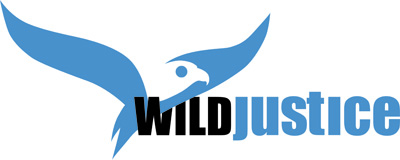If you are mounting a legal challenge…
Six years ago, before Wild Justice came into existence, two of us, Ruth with the Scottish Raptor Study Group and Mark as an individual, were embarking on legal challenges of the licensing of killing ravens in Scotland and the licensing of removal of Hen Harrier chicks from nests in England. Our experiences were instrumental in the setting up of Wild Justice. Much of our work, and a very large proportion of our expenditure, is involved with legal challenges of the decisions of public bodies such as agencies and government departments.
We believe that our successes, and sometimes our failures too, have motivated others to seek legal advice and challenge the actions of public bodies and we applaud that.
Sometimes we are asked to support such challenges, and sometimes we do – we’ve previously provided help to Open Seas and their challenge surrounding scallop dredging, and Whitewebbs Park and their campaign to preserve a greenspace in Enfield. Sometimes this support is financial, and sometimes we support others’ work by sharing their campaigns and petitions.
We thought that it would be useful for us to lay out some of the aspects of a legal challenge that increase the likelihood of Wild Justice lending our support to your work. We are working on much more comprehensive ideas – so this is simply a starter.
Here we are thinking about individuals or organisations who have already sought and received legal advice, and who are going ahead with a legal challenge. We are not lawyers (but we know some people who most definitely are) and we are not in the business of giving legal advice.
But if you’ve done that, and are starting to raise funds, then here are some pointers to things which are likely to increase your chance of our support:
- Fundraise through the Crowdjustice platform https://www.crowdjustice.com/ : this is set up to deal with legal cases where the money you raise will go to pay some lawyers to take the case on your behalf. We have dealt with Crowdjustice a lot and find them good to work with, but more importantly, the money, if not all spent on your legal case, will remain in the system and can eventually be allocated to other legal challenges. That’s the type of thing Wild Justice wants done with our money. To be facetious to make the point – we don’t want our contribution to be spent on a big party afterwards!
- Choose good lawyers and tell the world who they are: Crowdjustice allows the legal firms involved to be named on the fundraising page eg see an old page of ours – click here
- Make it very clear what you are challenging and what might be the outcome of a successful challenge: we, and anyone else, needs this information in order to decide whether or not to offer support.
- Contact us nearer the beginning of your fundraising than the end: we make decisions quickly but it still takes time to transfer money and to tell our supporters about your case so that they can contribute as individuals if they wish.
If you take notice of these suggestions it will make it easier for us to decide whether we can help you – the answer still might be ‘no’, of course.
Wild Justice is keen to operate collaboratively and supportively amongst different campaign groups and organisations – we’re stronger together after all. In the near future we’ll be looking to pull together some more comprehensive advice for individuals or groups who are looking to challenge the ways our environment and wildlife are being damaged. As well as helping other groups, we want to to help encourage campaigns to be independent, confident and efficient in their own right. Watch this space.
